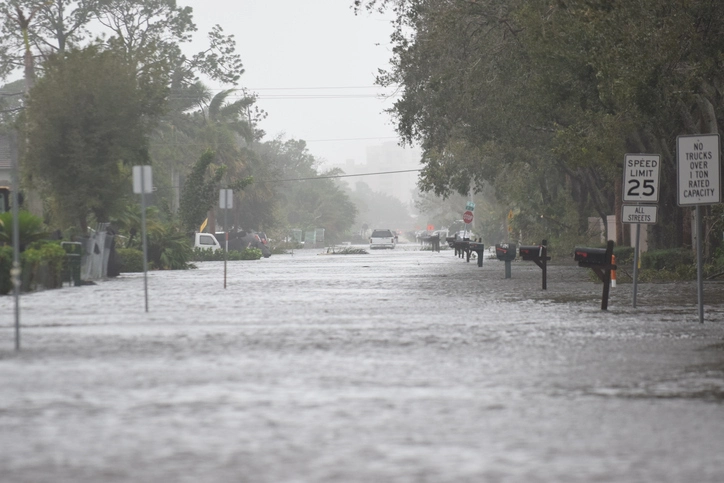As Hurricane Helene approaches Florida, I’m struck by the parallels between disaster preparedness and estate planning. Having lived in Florida for over two decades, I’ve experienced the uncertainty that precedes a hurricane’s landfall. In 2023, Tampa Bay narrowly avoided a direct hit from Hurricane Idalia, yet still suffered massive storm surge and extensive damage.
Hurricanes, as my favorite local weatherman Denis Phillips calls them, are “stalking turtles” – slow-moving but inevitable. We can prepare for them by stocking up on supplies and securing our property. However, life’s other “storms” – accidents, unexpected health diagnoses, or sudden loss – don’t offer such warnings.
In the past year alone, our family has faced two cancer diagnoses and a sudden death. Unexpected late-night phone calls, daily trips to the hospital, making complex medical and financial decisions, and eve making advanced funeral planning arrangements underscored the importance of preparation, not just for natural disasters, but for life’s unforeseen challenges.
This article is a call to action. Just as we prepare for hurricanes, we can and should prepare our families for worst-case scenarios. By taking steps now, we can prevent devastation in the wake of life’s unexpected “hurricanes.” Let’s explore how to safeguard your family’s future against some of life’s biggest challenges. Here are our top 5 tips for making sure you’re prepared.
- Make sure you have a will or a will and trust. These documents are the foundation of a good estate plan. They allow you to say who will be in charge of whatever you own when you die and name the people to be in charge of winding down your affairs. Each of these documents have their own advantages and disadvantages, so make sure you talk to an estate planning attorney who can guide you through your specific situation.
- Review account ownership and beneficiary designations and make sure they coordinate with your overall estate plan. Many people do not understand that these things can override whatever you have in your will or trust. Account ownership refers to who legally owns an account during the owner’s lifetime. It can determine who can access and manage the account. We find many people put their children on for convenience purposes but are surprised to learn what having a co-owner actually means. Beneficiary designations, in contrast, refer who will receive the account assets when the owner dies. These beneficiary designations override instructions in a will. You may want one person to receive that account, and may even list it in a will, but putting a different beneficiary on that account may thwart your intent.
Make sure you have a power of attorney. A power of attorney will allow someone to make legal and financial decisions for you. A person named in this document is called an “agent.” Examples of things your agent can do include buying and selling property, applying for government benefits such as Medicare or Medicaid, filing tax returns and managing insurances. You can also use this name a guardian in the power of attorney in case a guardianship is ever needed. - Make sure you have Advance Healthcare Directives. It is critically important to have a Designation of Healthcare Surrogate and a Living Will. Do not assume that your loved ones can automatically make medical decisions for you. A healthcare surrogate allows you to say who you want to make medical decisions for you in case you cannot give informed consent (i.e., tell the doctors what you want). You can include instructions about things that are and are not acceptable, such as CPR, blood transfusions, and even give permission to refuse medical treatment. A Living Will, on the other hand, is an end-of-life document, telling the doctor and the hospital what you want to happen if you are terminally ill, have an end-stage condition or are in a coma.
- Regularly review and update your estate plan. Over time, our children grow, the people you want to help die, perspectives shift, and more importantly, your spouse’s health may decline. Procrastinating on updating your estate plan can lead to severe complications. This year alone, we’ve talked to numerous couples who established their estate plans in the early to mid-1990s. Now, three decades later, they face a critical issue: one spouse has developed dementia. Consequently, their joint trusts cannot be changed due to the spouse’s lack of mental capacity. Often, these situations are compounded by substantial asset growth and unforeseen challenges with adult children, such as substance abuse issues or marital problems. Regular reviews and updates to your estate plan are crucial. They ensure that your plan continues to reflect your current circumstances, protects your assets, and provides for your loved ones as you intend.
In conclusion, don’t let life’s hurricanes destroy the life you created. Just as we take steps to prepare for storms, you can take steps to have a solid estate plan in place. With over two decades of experience, we’ve helped countless families put together solid estate plans that are ultimately an act of love and minmize the uncertainty that comes with aging, sickness, and death. Call us today at 727-291-9320 to secure your family’s future.




